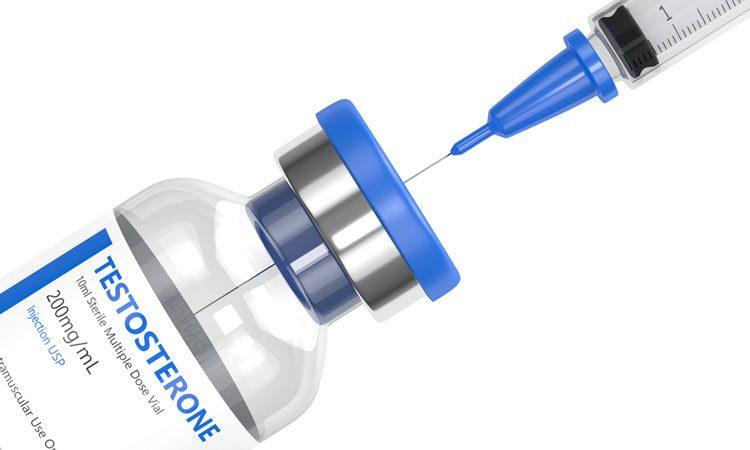Benefits of Testosterone Therapy in Elderly Men


As men get older, their testosterone level drops. The drop in testosterone levels leads to various things, including anemia, decreased sexual function, and brittle bones.
Some physicians use testosterone therapy to help with such outcomes. There has been increased interest in the use of testosterone therapy in elderly men. Most studies attempt to show whether this therapy helps with such conditions.
Testosterone is a primary male sex hormone that plays a crucial role in the development of the male reproductive tissue and enhances male sexual features such as the growth of body hair.
Testosterone therapy helps to restore the functions of testosterone in elderly men. Some of the signs and symptoms of low testosterone levels include changes in sleep patterns whereby there is a rise in insomnia or sleep disturbances, changes in sexual function like reduced sexual desire, emotional changes such as depression, and physical changes including decreased bone density.
A good example of testosterone therapy is Testosterone-enanthate, a drug used to treat low testosterone levels. This drug works by improving male sex characteristics and building muscles.


Testosterone therapy can help elderly men by changing the effects of hypogonadism. Although some men argue that taking testosterone medicine makes them feel more vigorous and younger as they age, they are no official confirmations to back these claims.
In some, testosterone therapy can increase muscle mass but does not interfere with strength. For hypogonadism caused by low testosterone levels in old age, doctors use testosterone replacement therapy to prevent bone loss and restore muscle strength.
The findings of the study by Stephen and Thomas helped to identify various benefits of testosterone therapy that scientists have measured and proven.
According to the authors, many questions remain unanswered. Multiple studies with elderly men have shown that testosterone improved depression since low testosterone levels usually cause distress in men.
Moreover, trials in older men have shown that testosterone improves spatial and verbal memory. In another study that focused on men 65 years of age or older, raising the level of testosterone using testosterone therapy had moderate benefits concerning depressive symptoms, mood, and sexual function.
As men grow, they lose strength and muscle mass, which can lead to physical limitations and frailty. Low testosterone levels contribute to most of this muscle deterioration. If an older man cuts back on his physical exercise, they experience more muscle loss.
A temporary boost of testosterone can help to break this cycle. Some older men using testosterone report strength gains while others do not. Most of those who report strength gains are older adults diagnosed with hypogonadism.
It helps to prevent bone loss and restores muscle strength. As a result, the man experiences an increase in sex drive, energy, sense of well-being, and erectile function.
A study published in the European Heart Journal found out that older men experienced enhanced heart health and reduced stroke and mortality when treated with testosterone therapy.
In the study, the researchers discovered that men who received testosterone therapy were 56% less likely to die, 36% less likely to have a stroke and 24% less likely to have a heart attack. These findings show that therapy can help to improve the heart health of older men.
Testosterone therapy can lead to sleep apnea, which is a severe sleep disorder whereby breathing keeps stopping and starting. Besides, it can cause acne among other skin reactions.
Testosterone therapy can trigger the growth of noncancerous cells of the prostrate or worsen prostate cancer. Furthermore, it limits sperm production, causes testicle shrinkage, and increases the risk of deep vein thrombosis.
Due to these side effects, you should consult an expert about testosterone therapy. When not sure whether the treatment is the right option, ensure you speak to the doctor concerning the benefits and risks.
Your doctor will check your testosterone levels first before recommending the treatment. In most cases, doctors do not recommend therapy in normal aging, which always results in low levels.
Conclusion
Low testosterone levels can cause adverse side effects in older men such as reduced sex drive, low bone mass, and reduced energy. However, testosterone therapy can help to counteract these effects in older men.
These benefits include improved heart health, increased bone mass, and muscle strength, low depression levels, and enhanced mood and cognition.
If you are experiencing any of these, then you should try using this therapy due to its effectiveness from the studies.
Despite the many benefits of the treatment, it is imperative not to overlook the side effects of testosterone therapy and their impact on the body.
